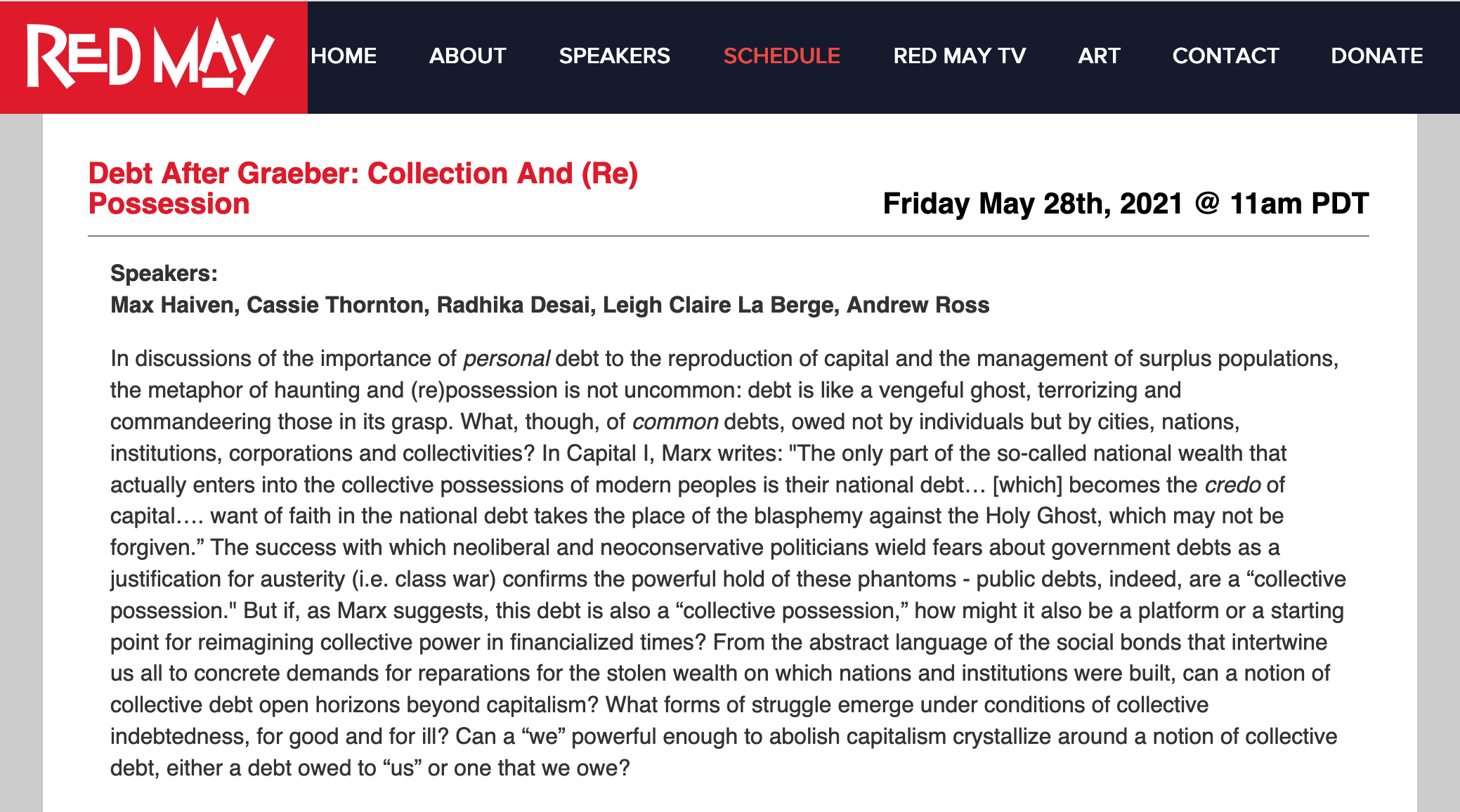Part of the Red May 2021 program
Speakers: Max Haiven, Cassie Thornton, Radhika Desai, Leigh Claire La Berge, Andrew Ross
In discussions of the importance of personal debt to the reproduction of capital and the management of surplus populations, the metaphor of haunting and (re)possession is not uncommon: debt is like a vengeful ghost, terrorizing and commandeering those in its grasp. What, though, of common debts, owed not by individuals but by cities, nations, institutions, corporations and collectivities? In Capital I, Marx writes: “The only part of the so-called national wealth that actually enters into the collective possessions of modern peoples is their national debt… [which] becomes the credo of capital…. want of faith in the national debt takes the place of the blasphemy against the Holy Ghost, which may not be forgiven.” The success with which neoliberal and neoconservative politicians wield fears about government debts as a justification for austerity (i.e. class war) confirms the powerful hold of these phantoms – public debts, indeed, are a “collective possession.” But if, as Marx suggests, this debt is also a “collective possession,” how might it also be a platform or a starting point for reimagining collective power in financialized times? From the abstract language of the social bonds that intertwine us all to concrete demands for reparations for the stolen wealth on which nations and institutions were built, can a notion of collective debt open horizons beyond capitalism? What forms of struggle emerge under conditions of collective indebtedness, for good and for ill? Can a “we” powerful enough to abolish capitalism crystallize around a notion of collective debt, either a debt owed to “us” or one that we owe?
